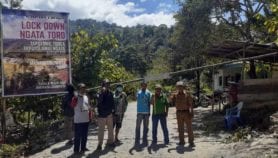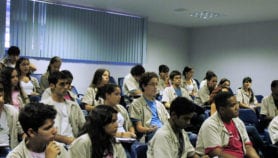By: Archita Bhatta
Send to a friend
The details you provide on this page will not be used to send unsolicited email, and will not be sold to a 3rd party. See privacy policy.
[NEW DELHI] Scientific awareness in India has increased in the last decade, showing a trend similar to that of China, according to a new study.
Based on surveys involving over 30,000 people every six years, from 1989 to 2007, the study’s findings were presented at a national workshop on scientific temper last month (15-17 June) at Palampur, Himachal Pradesh state, northern India.
The surveys covered states in north and central India from those with low literacy levels to large religious gatherings, and compared the results with surveys carried out in China.
According to Raza, this model cannot be applied to developing countries with communities or tribes living in remote villages and hills, or those not served by formal education or mass awareness campaigns.
A team at the Delhi-based National Institute of Science, Technology and Development Studies (NISTADS), where Raza worked until 2010, had since 1989 been developing another model of assessing public understanding of science, based on ‘cultural distance’, which takes into account a person’s social, economic, educational and cultural background.
For example, a person’s knowledge of biodiversity or the environment may not be linked to formal education, but local, traditional knowledge.
Similarly, a community may not be aware of complex mathematical formula, but still be aware of the complex HIV epidemic, because the latter impacts their lives directly.
The authors attributed the increase in scientific awareness in India largely to the growth of people’s science movements in the country.
To measure scientific awareness levels, the Indian team prepared five questions that assessed concepts such as the earth’s shape, rotation, revolution, formation of galaxies and human evolution.
The study found significant regional disparity in awareness levels within India which, Raza said, should be factored into designing national campaigns to improve scientific awareness.
The fact that some states with low literacy rates,scored high on public understanding of science shows that literacy and education are not the only influencing factors, Raza said.
“It indicates that in these places awareness about certain scientific facts has become part of the cultural background and is nurtured irrespective of the level of education,” Raza explained.













